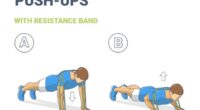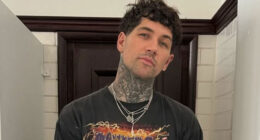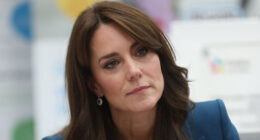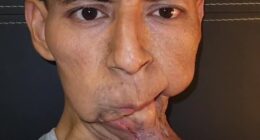Elle Macpherson has said she was diagnosed with breast cancer seven years ago but is now in remission despite refusing chemotherapy.
The Australian supermodel and actor, who rose to fame in the 1980s, is publishing a memoir – Elle: Life, Lessons, and Learning to Trust Yourself – in which she says she took a holistic approach to the illness, going against the advice of 32 doctors.
In an interview with the Australian Women’s Weekly, Macpherson discusses her choices after undergoing a lumpectomy seven years ago and being diagnosed with HER2-positive oestrogen receptive intraductal carcinoma – a type of breast cancer.
She says doctors advised her to undergo a mastectomy with radiation, chemotherapy, hormone therapy and reconstruction of her breast.
But the founder of the beauty and wellness firm WelleCo – who was dating the disgraced anti-vaxxer Andrew Wakefield at the time – decided against traditional medicine.
Macpherson, 60, says she rented a house in Phoenix, Arizona, for eight months, where she “holistically treated” her cancer under the guidance of her primary doctor, a doctor of naturopathy, holistic dentist, osteopath, chiropractor and two therapists.
She said: “It was a shock, it was unexpected, it was confusing, it was daunting in so many ways and it really gave me an opportunity to dig deep in my inner sense to find a solution that worked for me.”
On her decision to reject traditional medicine, she said: “Saying no to standard medical solutions was the hardest thing I’ve ever done in my life. But saying no to my own inner sense would have been even harder,”, later adding she thought chemotherapy and surgery were too extreme.
Macpherson says she is in clinical remission, which she referred to as “utter wellness”. She told the magazine her sons Flynn, 26, and Cy, 21, and former partner Arpad “Arki” Busson had mixed reactions to her approach.
Typical cancer treatment centres on surgery, chemotherapy and radiotherapy. There is no scientific or medical evidence that alternative therapies can cure cancer, Cancer Research UK (CRUK) says.
The charity says some patients use complementary therapies alongside conventional medical treatments, or alternative therapies instead of conventional medical treatment. Examples of complementary therapies include aromatherapy, acupuncture, herbal medicine, massage therapy, visualisation and yoga.
CRUK says some complementary therapies can help people feel better but may cause side effects, while some alternative therapies may be harmful and cause side-effects as well as interfering with conventional cancer treatment.
Wakefield prompted large drops in vaccination rates in the UK and Ireland when he published a paper in the Lancet in 1998 – since retracted by the medical journal – claiming there was a link between the vaccine for measles, mumps and rubella (MMR), and autism and bowel disease.
His theories were subsequently debunked and his medical licence was revoked. Nevertheless, Wakefield has made a living promoting his discredited theories.





